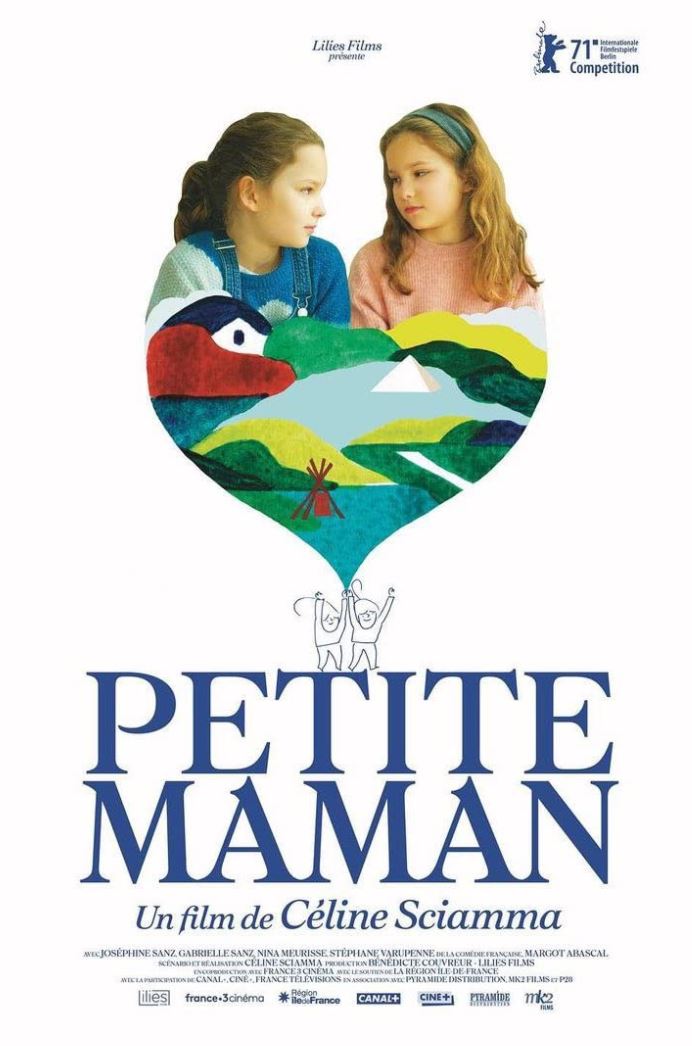TIFF Review: Celine Sciamma’s Petite Maman



Celine Sciamma follows her 2019 breakout arthouse hit, Portrait of a Lady on Fire, with Petite Maman, a contemporary tale of parents and children, mothers and daughters. Written and directed by Sciamma, Petite Maman fits the recent fad for time travel/loop films as a young girl, Nelly (Joséphine Sanz), finds her mother in the woods, in more ways than one. Though it does not reach the heady highs of Portrait, Petite Maman is the kind of quietly affecting film that had me reaching for the phone to call my own mother as soon as it was over. Sciamma’s delicate touch with her young cast and attention to emotional nuance turn what could be a simple childhood fable into a moving examination of how we relate to our parents, and the kind of impossible emotional nakedness needed to truly understand them.
The film opens with young Nelly farewelling the residents of the nursing home where her grandmother, also called Nelly, has recently passed. She then goes with her mother, Marion (Nina Meurisse), and her father (Stéphane Varupenne), to clean out her grandmother’s house. This is Marion’s childhood home, and Marion tells Nelly of a fort she built in the nearby woods. At first, there appear to be no other children around, but after Marion abruptly leaves, Nelly meets a young girl in the woods, also called Marion (the young Marion is played by Joséphine Sanz’s real sister, Gabrielle Sanz). The two girls become fast friends, and soon Nelly accompanies Marion home, to a house that looks just like her mother’s childhood home. She also meets Marion’s mother (Margo Abascal), who is also named Nelly and walks with a cane, just as Nelly’s grandmother did. Soon enough, Nelly puts it together and realizes she is encountering her own mother as a child, passing between now and then as she walks through the woods.
Children are capable of astounding emotional intimacy, and Sciamma captures the instant and sincere bond Nelly and Marion form upon meeting one another. Casting real life sisters not only has the effect of making young Nelly and Marion look believably related, but also of imbuing their relationship with the sense of a deep, tangible bond. As the timey-wimey nature of their friendship is revealed, their friendship takes on a new poignancy. Nelly can soothe Marion’s fears of an upcoming surgery because she knows Marion will be okay, and Marion can absolve Nelly of feeling any guilt or responsibility for her grown-up self’s sadness. Sciamma is absolutely uninterested in the mechanics or magic of how Nelly and Marion meet, only that they do and the opportunity it allows both the characters and the viewers to experience their unique friendship. But because it is a timey-wimey story, the sense of something special occurring is heightened, that this is a looking-glass situation we may wish for—how wonderful, the chance to know a parent as a child—but can never achieve.
That the encounter takes place in autumn increases the bittersweet nature of Nelly and Marion’s friendship. Autumn is the most fleeting of seasons, the liminal space between life and death. Nelly is in an autumnal period of her own, a child in the presence of death, and her grandmother’s home so isolated it almost seems to be in a pocket universe. There are no other people around but her parents, Marion, and her own namesake as a middle-aged mother, not yet a grandmother. With a limited use of music, which leaves the soundscape of the film to be filled with wind rushing through dry leaves, Sciamma captures that liminal feeling of both autumn and Nelly’s private universe in the nowheresville of her grandmother’s home. At one point, Marion asks where Nelly came from and she replied, “I came from the path behind you.” Nelly is not just Marion’s future, she is also her past, the link between mother and daughter forged not in linear space but in those autumn woods where past and present are one. Perhaps we can never truly know our parents, but Petite Maman allows us to imagine a mother as a playmate, not just a progenitor.
